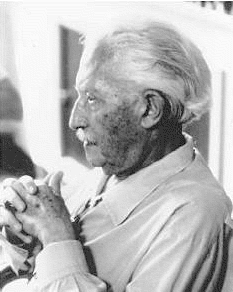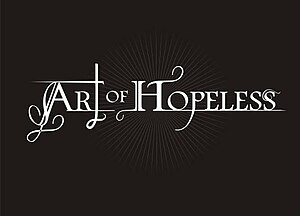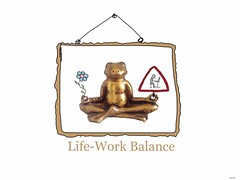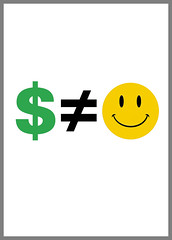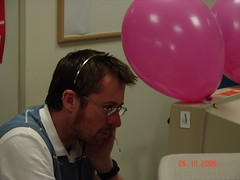An identity crisis sounds like an awful experience. And, sure, having one doesn't feel terrific: you're searching, unsure of who you are or what you're going to do next, and open to more possibilities than Lindsay Lohan is to court appearances. But as we've discussed in the past, identity crises are absolutely necessary. If you don't have one (or two, or three), you'll never fully understand who you are. And thus never feel entirely fulfilled.
So here are some pointers on how to have a good old-fashioned identity crisis. And how not to.
DO: Take action.
An identity crisis isn't about sitting around doing nothing, reading mellow poetry, and coining metaphysical sayings like "What we are is only what we think we are." Uh, no. Sure you have to be willing to look at yourself - deeply - but the best way to do that is by getting out there. As in, living life. And reflecting on that living as you go.
Psychologist Meg Jay makes this point in her book The Defining Decade, writing "Twentysomethings who take the time to explore and also have the nerve to make commitments along the way construct stronger identities. They have higher self-esteem and are more persevering and realistic."
To be is to do. Or something deep like that.
DON'T: Search for perfection.
If you think exploring options and finding your true self will lead you to the perfect life, think again. In fact, people who have been through identity crises tend to experience more anxiety and depression than those who have avoided them (the former do experience many positive things, like greater meaning in life, so don't let this fact scare you off!).
The reality is that you're searching for a "best fit" for your life. The goal is to get in touch with your innate preferences and your ideal life conditions and to forge a life based around that knowledge. As best you can.
Even if you manage to succeed in creating that exact life - tell me your secret, if so - you'll still find things you'd like to change. That's called being human.
We're looking for good enough here people. Not "I love every aspect of my entire existence at all times." That doesn't exist for anyone.
DO: Take your past into consideration.
My students seem to think they'll be blank slates when they graduate from college, as if they're starting on day one of creating their identities. Not so much. Meg Jay puts it well when she says, "You've spent more than two decades shaping who you are. You have experiences, interests, strengths, weaknesses, diplomas, hang-ups, priorities. You didn't just this moment drop onto the planet."
In other words, let your past help you. Yes, there may be aspects of your old self that you want to jettison (the emo phase, anyone?), but the self-knowledge you've gained to date can help you get through an identity crisis, not hold you back. You're not at square one. It's pure histrionics to insist otherwise. (Believe me, my 20something journal is filled with just such dramatic insistences.)
DON'T: Commit before you're ready.
Here's the classic pattern I see in my college seniors: they come in midyear saying things like, "I have no idea what I want to do next. I'm totally lost. What's going to happen after I graduate?" Total identity crisis mode.
Then a month or two later, I see them again and prod them about the progress they've made toward answering those questions. They look at me blankly and say something like, "What? Oh, I'm all set. I've decided to be a _______ (usually something they never, ever mentioned in four years of meeting with me). No worries."
I call this the Panic Pick. Being in an identity crisis feels uncomfortable. In response you reach out and grab the first viable option that drops before you. It's roughly equivalent to beer goggles. Or wedding hook-ups.
Panic Picks don't result in identity achievement. They result in a false identity called moratorium. Which is a state you'll regret later.
DO: Explore a wide range of options.
Bottomline: You have to try things out in order to emerge from an identity crisis successfully. You can't think your way out of one, can't randomly cling onto something and hope it'll carry you through life, can't ignore the questions and pray they'll answer themselves. We become who we are by seeing what works and what doesn't. And then adjusting accordingly.
I think of it like buying jeans: can you tell which will fit you just by holding them up and looking at them? Or, worse yet, grabbing the first pair you see and running to the counter with them? I certainly can't. (And even after trying on 30 pairs, I still end up with saggy loser jeans that aren't right. Sigh.)
So embrace this as a time to explore. Yes, you need to pay the bills. Do that. And then during your time off, try on jeans, as it were. Volunteer at organizations you've been curious about. Say yes to social offers. Take on low-commitment, unique part-time gigs. See what free experiential opportunities have popped up on Craigslist. Do things that shove you out of your comfort zone.
My favorite thing about my twenties (despite the angst and confusion) was all the things I did, now that I look back at them: volunteered at a lighthouse; worked as a secretary at a creative nonprofit (the only professor who answered phones - poorly - on her off days); scored SAT essays; volunteered at a youth writing center; stayed for weeks at a time in stinky, stripped dorm rooms while learning about fiction writing. All while married, working full-time, and living in a not-so-culturally-plentiful state. Exploration is a state of mind, not a situation. You make it for yourself.
DON'T: Consider every conceivable option.
That said, explore options within reason. As we discussed in Awash in Choices, too many choices spells psychological disaster. You'll notice that nearly everything I did in my 20s was vaguely writing related. I was feeling out the many borders of my favorite option. My actions may have looked disjointed to people around me - and often even to myself - but there was a theme.
As Meg Jay says after working with twentysomethings in clinical practice for over a decade, "I have yet to meet a twentysomething who has twenty-four truly viable options. Each person is choosing from his or her own six-flavor table, at best."
In other words, let your limited - albeit plentiful - options feel exciting rather than paralyzing. Then you can have an identity crisis worth talking about. Once its over.
What's your experience of the identity crisis? What has helped you get through it?
Related articles
From CA101:
Why Your Friends Have It All Figured Out (And You Don't)
Is the Search for an Authentic Self Worth the Hassle?
Finding Yourself is the Creative Challenge of Your Twenties
From others:
Identity Crisis - Theory and Research (about.com)
Are You Having an Identity Crisis? (Psychology Today)
The Defining Decade: Identity Capital Part I (Ask the Young Professional)
Is she having a crisis? Probably. But not a productive one. (Photo credit: Wikipedia)
There are parts of our past selves we'd rather forget. But the knowledge can help us move forward. (Photo credit: IvanClow)
Ever wanted to be one of those moving statues? Now's your time to try it out. Or maybe not. (Photo credit: Wikipedia)





